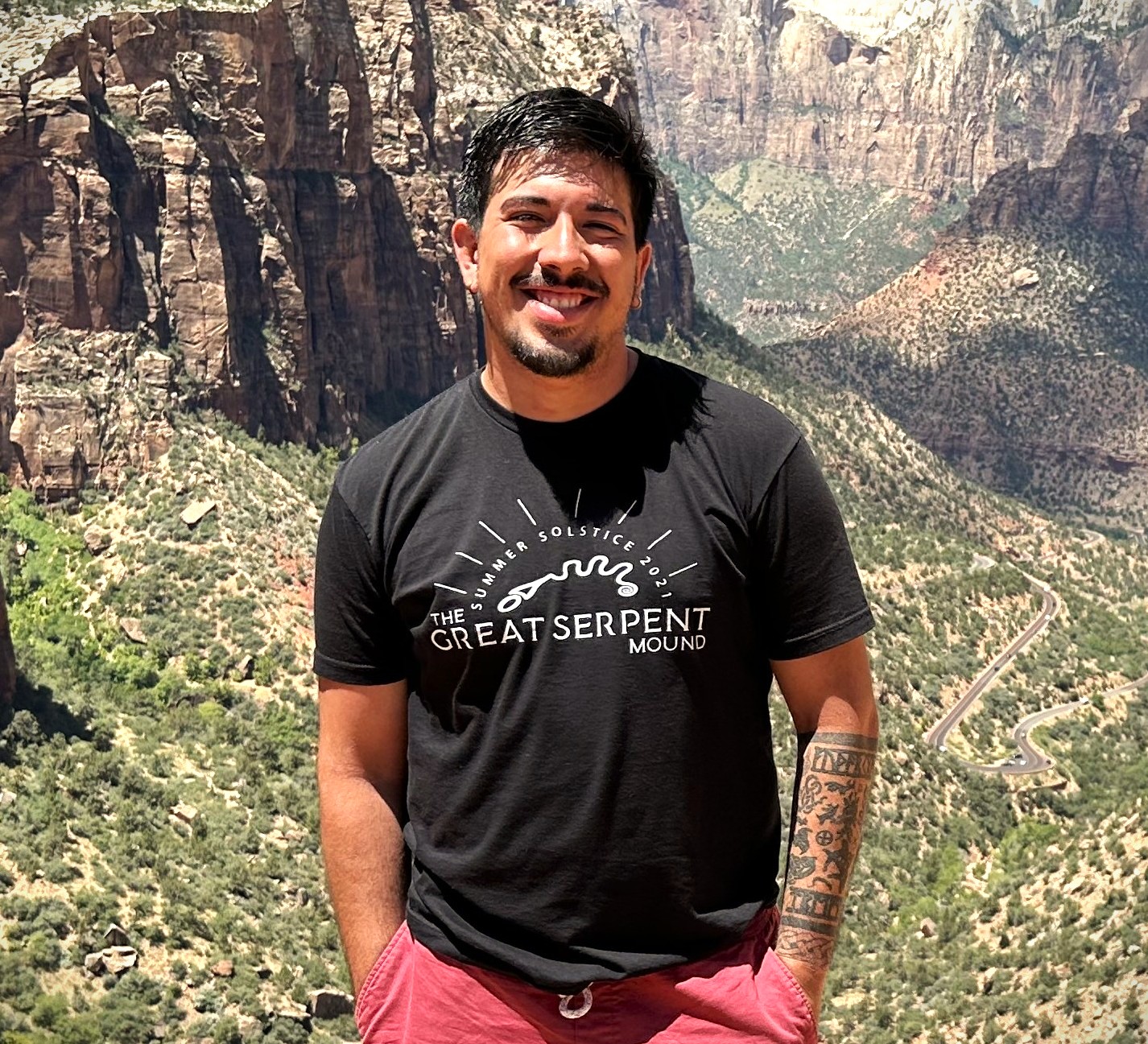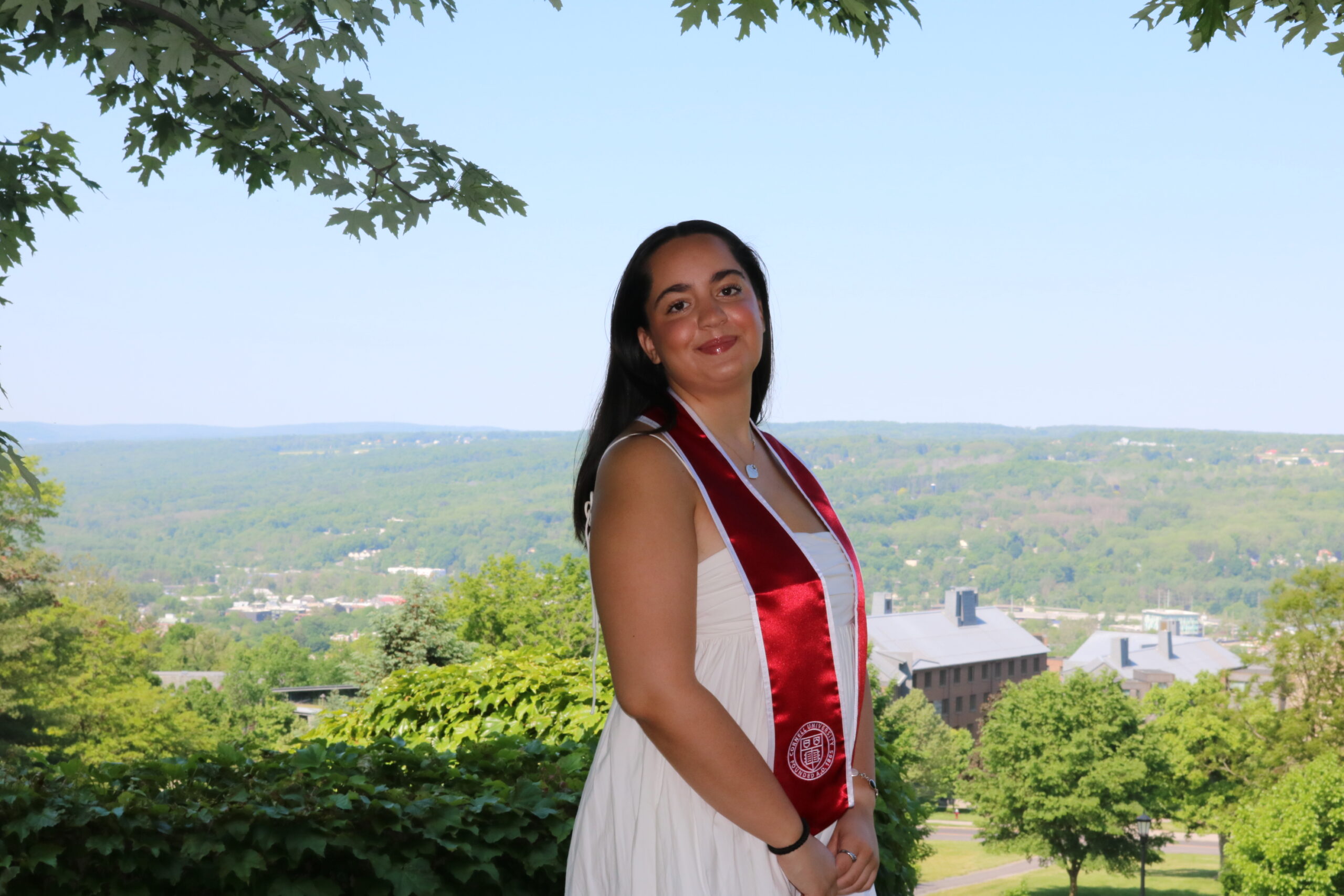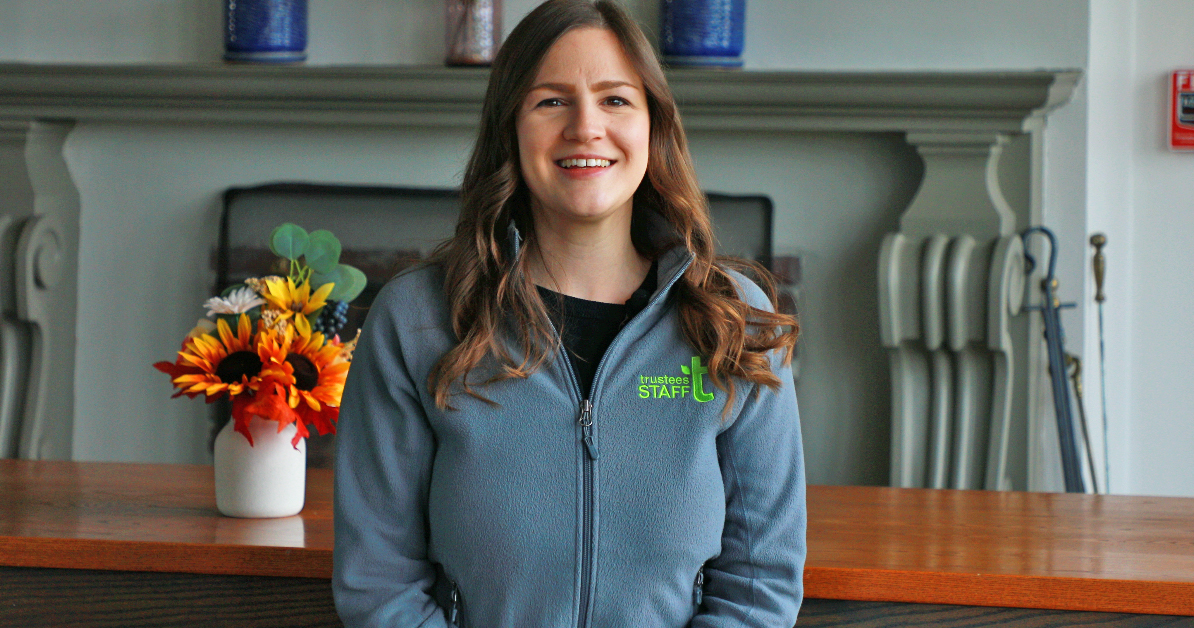
Elyssa Scheck is the Senior Regional Engagement Manager for The Trustees’ Southeast Region and a leader in increasing accessibility for neurodiverse visitors to our special places.
Can you tell us a bit about yourself and what you do at The Trustees?
I’m the Senior Regional Engagement Manager for The Trustees’ Southeast Region. I oversee our public programs and events at sites like Weir River Farm and World’s End, in Hingham, and I also manage many of the ways we connect with our community—like social media, email, and other public-facing communications. My role is all about creating welcoming, engaging experiences that help people connect with nature, agriculture, and each other. Whether it’s organizing a family-friendly farm event, highlighting our work online, or developing inclusive programming, I love finding ways to make our properties feel accessible, meaningful, and fun for everyone who visits.
You have helped to curate a lot of programming that helps The Trustees be a more welcoming organization for people with autism. What inspired this work?
I believe that everyone should have access to the outdoors—and not just access, but the opportunity to fully participate, feel comfortable, and be included. Nature has so much to offer in terms of joy, calm, connection, and discovery, and it should be available to all, regardless of sensory, social, or communication, or other needs.
Helping to build programming that supports neurodiverse participants is one way to move toward that goal. Whether it’s through sensory-friendly events, visual supports, or simply creating a judgment-free environment, this work is about removing barriers so more people can feel a sense of belonging in these beautiful places.
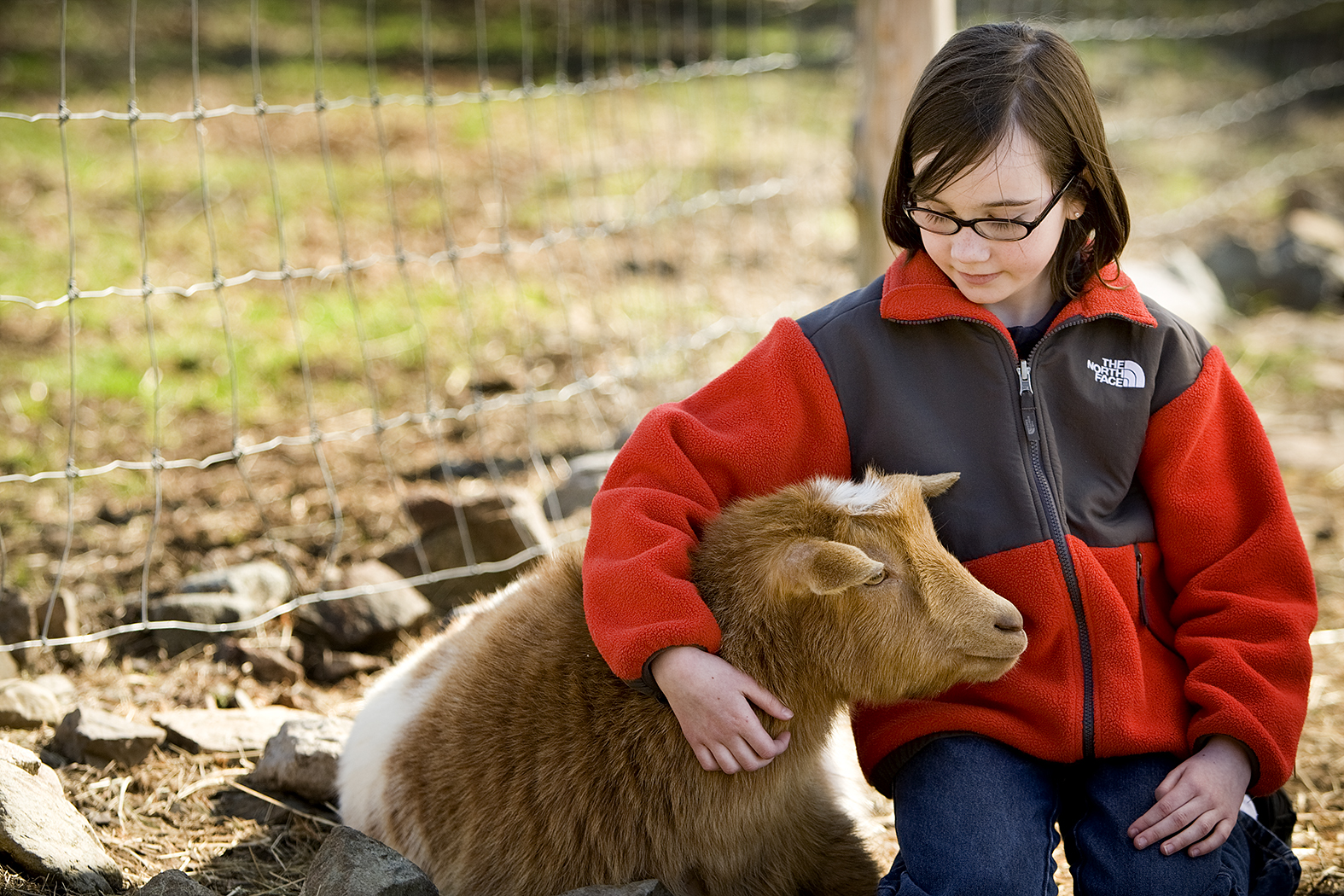
Sensory-Friendly programming has become popular at The Trustees' Weir River Farm. Photo by Tom Kates.
What are some of the offerings at Trustees properties that make us an Autism Welcoming organization?
We offer designated sensory-friendly events and experiences, such as Sensory-Friendly Open Barnyard, Sensory-Friendly Festival Hours, inclusive hikes, and other sensory-friendly events, designed with reduced crowds, lower noise levels, and other accommodations.
Several of our properties provide social stories and visuals to help guests understand what to expect before they arrive—offering structure and predictability that can be comforting for neurodiverse individuals. We also provide sensory kits with items such as noise canceling headphones, fidget toys, sunglasses, and other helpful tools.
Many of our educators and staff receive training on how to support individuals with autism, ensuring a more understanding and supportive environment. Our properties naturally offer peaceful, open spaces that can provide a calming environment. In some locations, we designate quiet zones or provide tips on when and where to visit for a more relaxed experience.
We regularly partner with organizations and groups who serve individuals and families with autism to run programs, invite volunteer groups, and more. We also seek feedback to improve our offerings—ensuring we continue to grow as an Autism Welcoming organization. We also welcome requests for accommodations and encourage those with questions to reach out.
These steps are part of our larger commitment to making nature and cultural experiences more inclusive, so everyone feels they belong at Trustees properties.
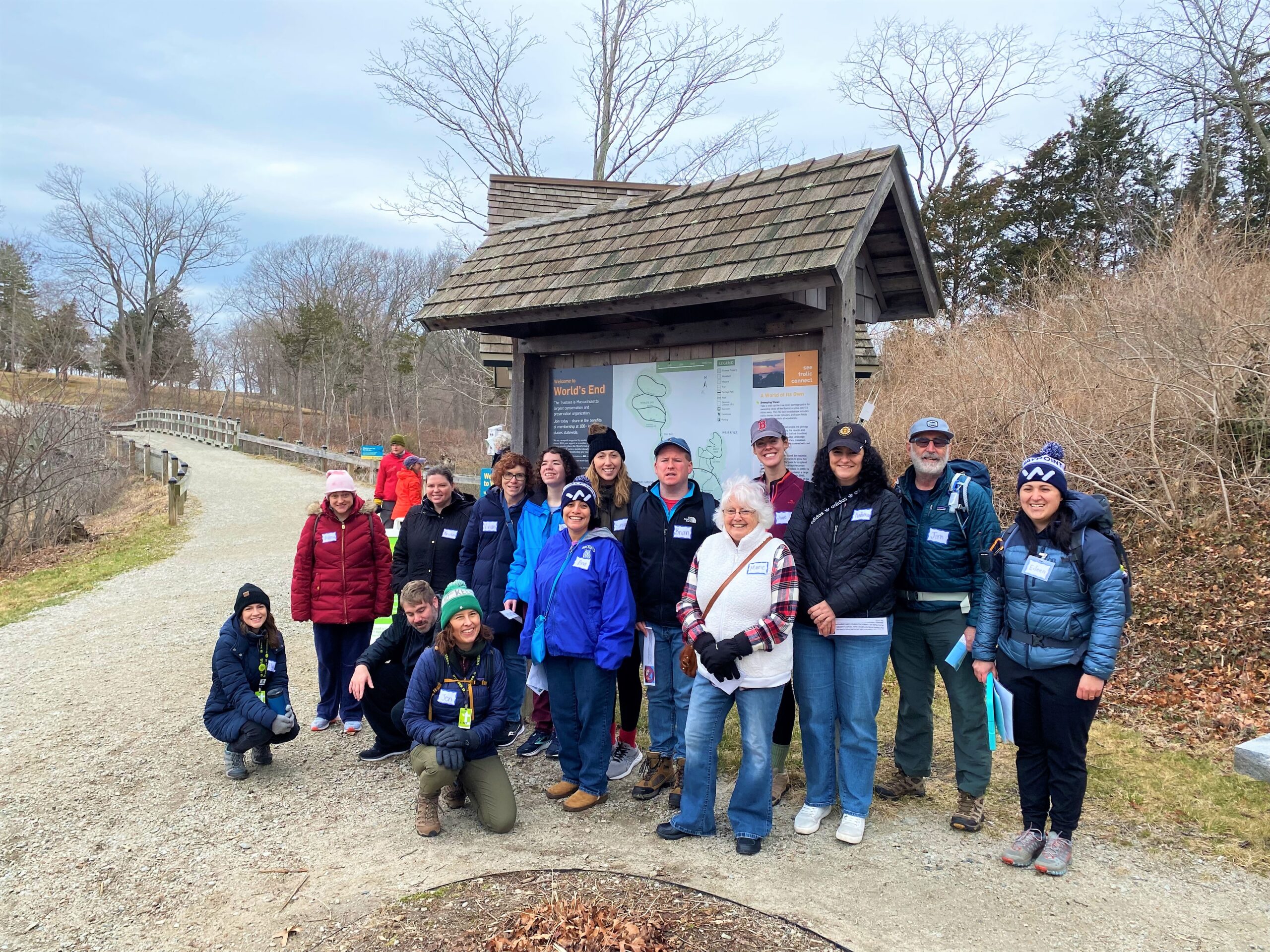
A hike Elyssa led at World's End in Hingham.
Can you tell us a bit about what a sensory-friendly program might be like?
A sensory-friendly program is thoughtfully designed to be more comfortable and accessible for individuals with sensory sensitivities, including many people on the autism spectrum. These programs often take place in quieter environments with smaller group sizes, allowing participants to engage at their own pace without feeling overwhelmed. Some programs take place in conjunction with larger events, such as Sensory-Friendly Festival Hours which are followed by the larger festival. This gives those who need it time to adjust and acclimate to the environment and then join in the larger event.
Here’s what a sensory-friendly program might include:
- Calm, predictable atmosphere: We reduce loud noises, sudden transitions, and bright lights whenever possible. The environment is relaxed and low-pressure.
- Visual supports: Participants might receive visuals or social stories ahead of time to help them know what to expect. This can ease anxiety and make the experience feel more manageable.
- Flexible participation: There’s no “right” way to engage—participants can choose how much or how little to join in. We often offer quiet spaces or calming corners nearby if a break is needed.
- Hands-on activities: We include simple, tactile experiences like petting farm animals, exploring nature textures, or doing nature crafts—activities that can be engaging and soothing at the same time.
- Trained staff: Our team is prepared to support a range of needs with patience, understanding, and flexibility. We strive to create a space that’s welcoming, respectful, and inclusive.
For example, our Sensory-Friendly Festival Hour admits fewer participants, excludes loud music, and is scheduled during a quieter time of day at Weir River Farm. We provide all vendors and volunteers tips and information for working with people with autism. If anyone wants to stay past the sensory hour, we provide line passes so that they do not have to wait in line for food, drinks or activities.
Overall, sensory-friendly programs are about meeting people where they are, removing barriers, and making it easier for everyone to connect with nature and community in a way that feels good to them.
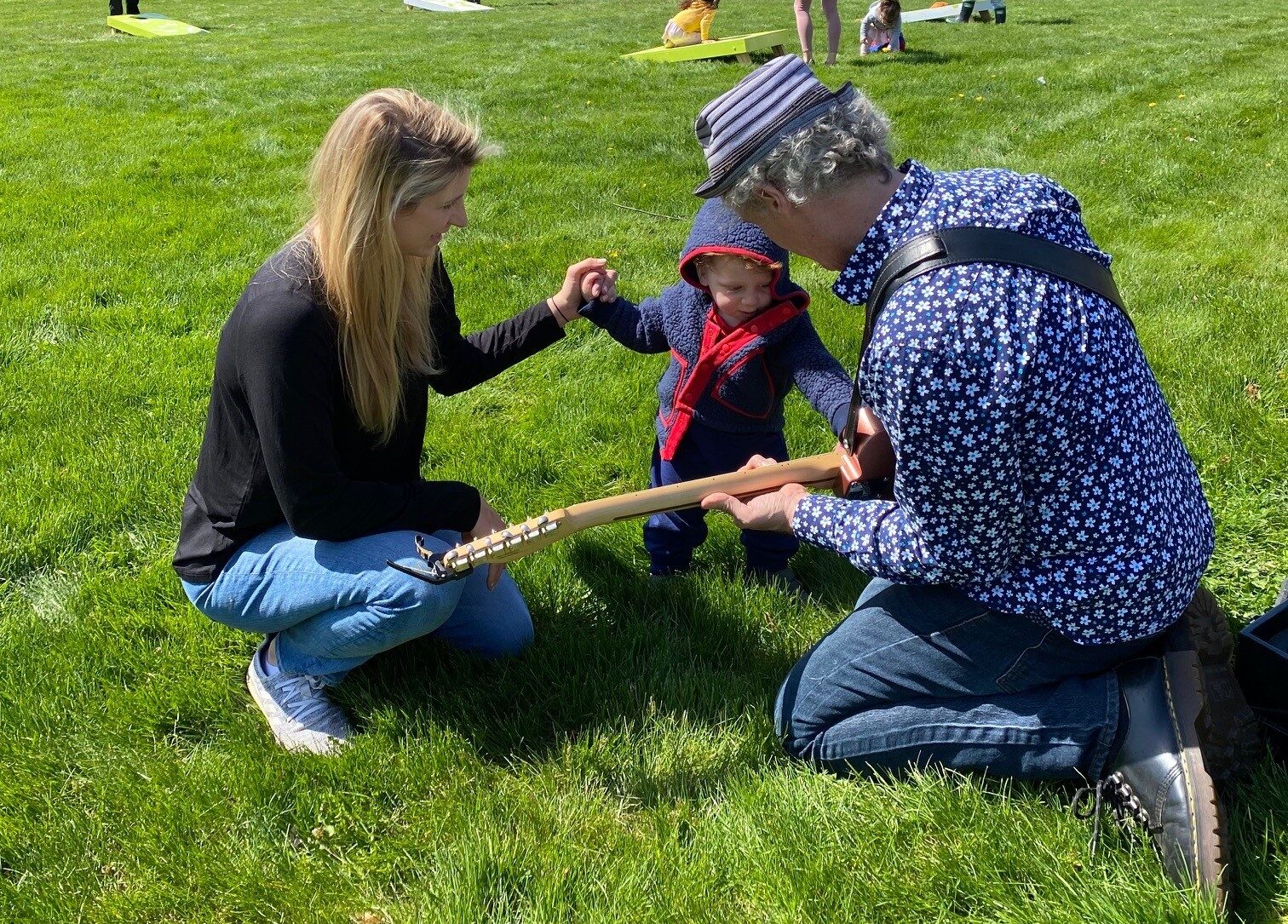
Programming at Weir River Farm is made accessible to a neurodiverse audience.
Can you tell us how you have implemented some of these accommodations at properties?
We’ve implemented a variety of accommodations across several Trustees properties to help ensure that all visitors—especially those with autism or with sensory sensitivities—feel welcome and supported. Here are a few examples:
Weir River Farm
- Sensory-Friendly Open Barnyard: These events feature smaller groups, reduced noise levels, and quiet corners so families can explore the barnyard and meet animals at their own pace.
- Social Stories: We provide visual guides that show what to expect during a visit—complete with photos and simple descriptions of activities and spaces.
- Trained Staff & Volunteers: Our team receives training on how to support neurodiverse guests, including communication techniques and how to recognize when someone might need a break or a quiet space.
General Program Adjustments Across Locations
- Smaller Group Sizes: Many of our programs, from craft programs to guided walks, are capped to maintain a quieter, more manageable atmosphere.
- Hands-On, Multi-Sensory Activities: We incorporate nature-based crafts, animal visits, and other tactile activities that are engaging without being overwhelming.
- Clear Communication & Signage: We make instructions and expectations as clear and accessible as possible, using visual aids and friendly guidance from staff.
- Contact information: We provide contact information for myself and other staff so that visitors can reach out to us with any questions.
These often benefit all guests, not just those with sensory needs—and we’re always learning and adapting based on feedback from families and participants. The goal is to make every visit a welcoming and enjoyable experience for everyone.
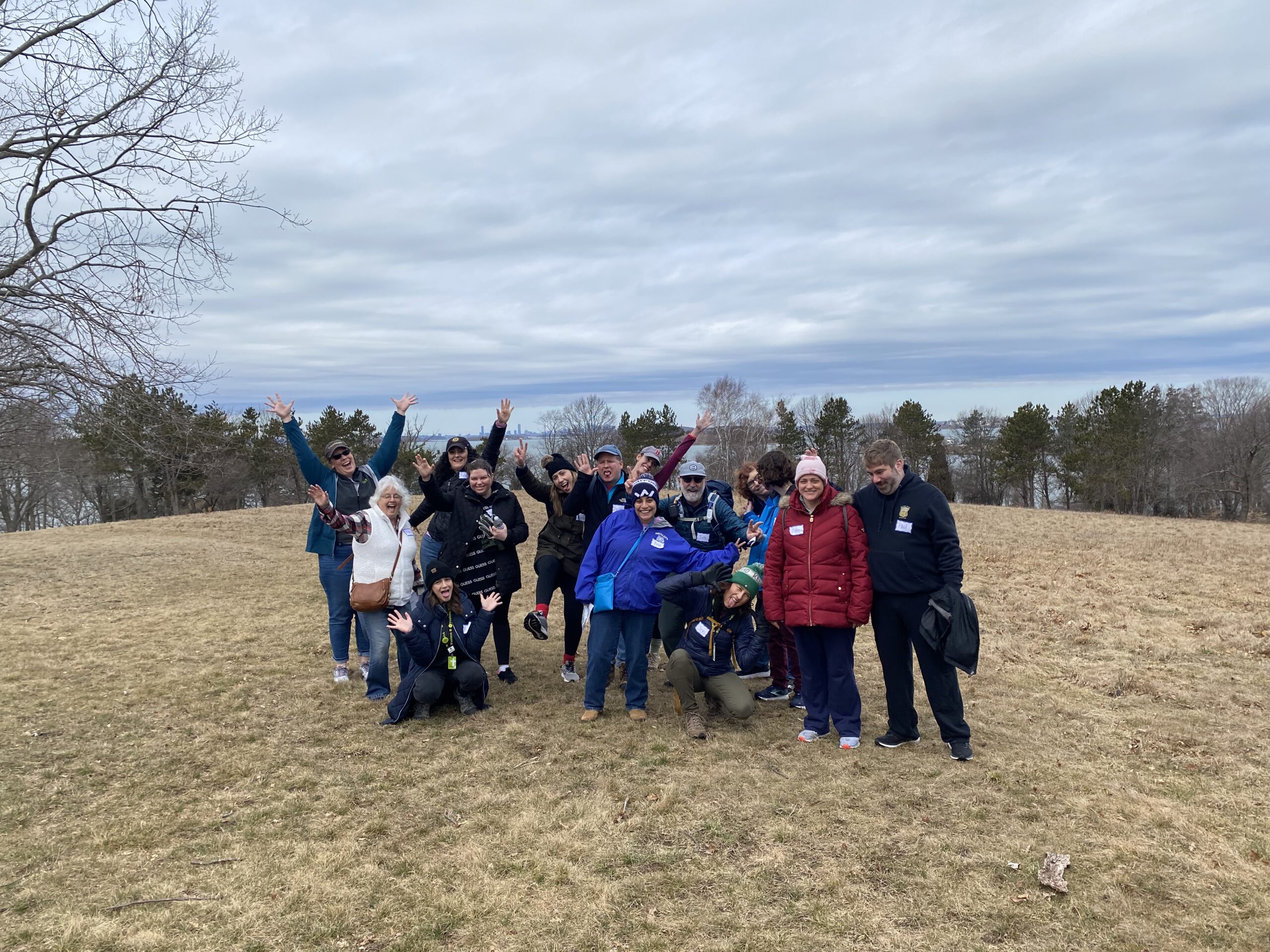
A group hike at World's End.
How have you seen your work spread across the organization?
It’s been really exciting to see this work ripple out across the organization in meaningful ways. What started as a few small pilot programs—like Sensory-Friendly Open Barnyard or Sensory-Friendly Photos with Santa at Weir River Farm—has grown into a broader conversation about inclusion, accessibility, and how we welcome all visitors to everything that we do.
More staff across different properties are now reaching out for tools, training, or guidance on how to make their programs more inclusive. The programs that were initially only taking place at our Southeast locations are now being replicated across the state and sensory-friendly programming is being integrated into our largest events. We’re seeing sensory-friendly principles being woven into everything from programs to camp planning and school programs. Teams are being more thoughtful about things like group size, pacing, communication style, and providing quiet spaces.
We’ve also started to build a shared library of resources—like customizable social stories, program description templates, and staff training materials—so locations across the state can implement these changes more easily and consistently. What’s most rewarding is that we’re seeing a cultural shift. It’s no longer a side effort—it’s becoming part of how we define great programming. There’s a growing understanding that accessibility isn’t just a nice-to-have, it’s essential to being a welcoming and equitable organization. And that momentum keeps growing, which is really heartening.
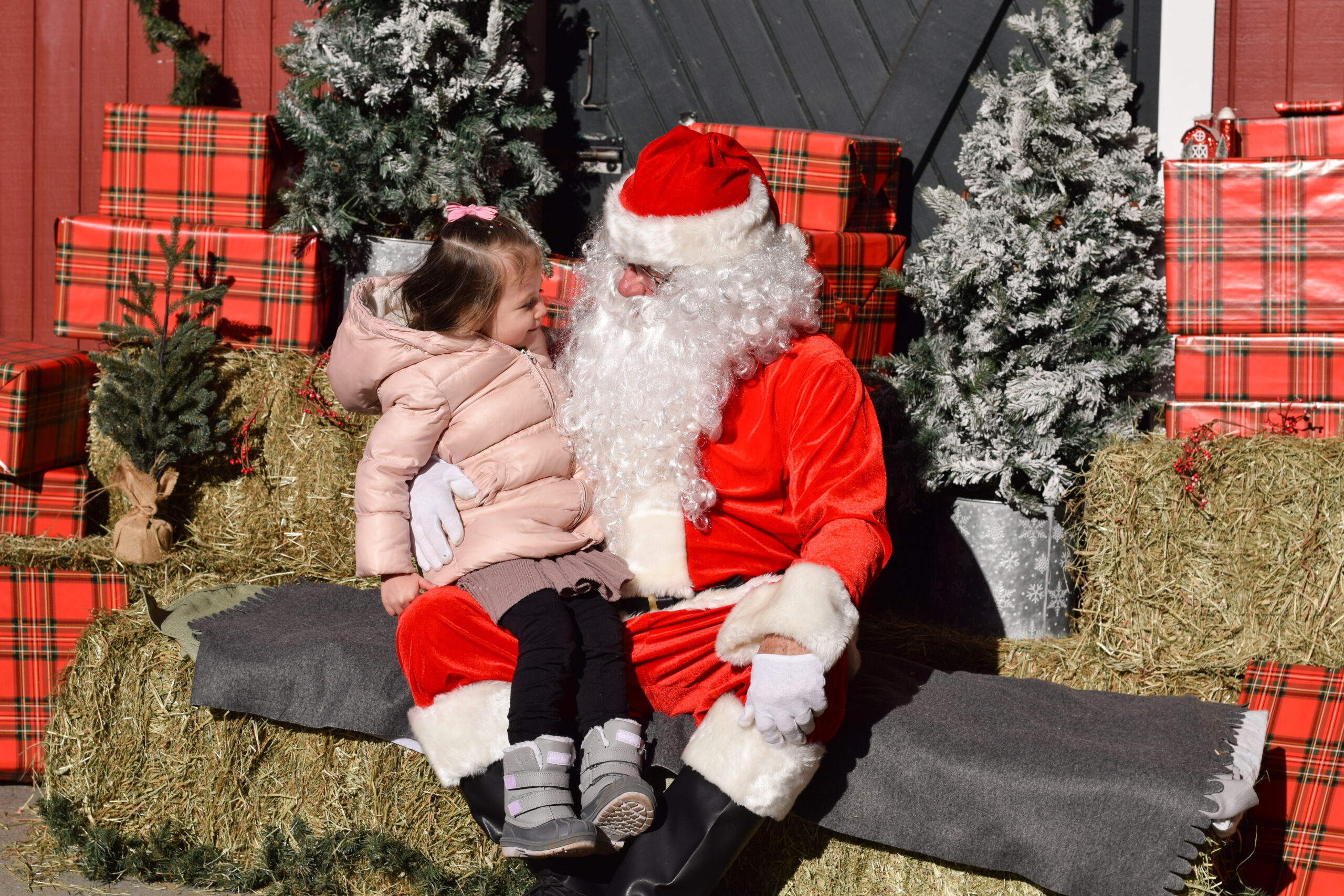
Sensory-Friendly photos with Santa has become a popular program at Weir River Farm during the holiday season.
If visitors can’t make a program that is specifically sensory-friendly, but would benefit from accommodations, what can they do?
We try to offer sensory-friendly programs on a regular basis, such as our Sensory-Friendly Open Barnyard program that takes place every-other Saturday. However, if a visitor can’t attend a specifically designated sensory-friendly program but would benefit from accommodations, we absolutely encourage them to reach out. Our staff are happy to work with families or individuals to make their visit more comfortable and enjoyable, even during standard program times. Additionally, many of our standard programs are small-group programs that take place in calm environments and may already be suitable for those with sensory-needs. We are also always happy to provide resources, such as information about what to expect, general property social stories (not program-specific), and sensory kits.
Is there anything else you’d like to add?
I feel incredibly lucky to do this work alongside such passionate, creative, and thoughtful colleagues. At the heart of it, I believe that nature and community should be for everyone, and it’s exciting to be part of an organization that’s continuously growing in that direction. Whether it’s welcoming a child to their first farm animal encounter, helping a visitor feel seen and included, or simply creating space for people to slow down and connect outdoors—it all matters. And I’m grateful to help make it happen.


